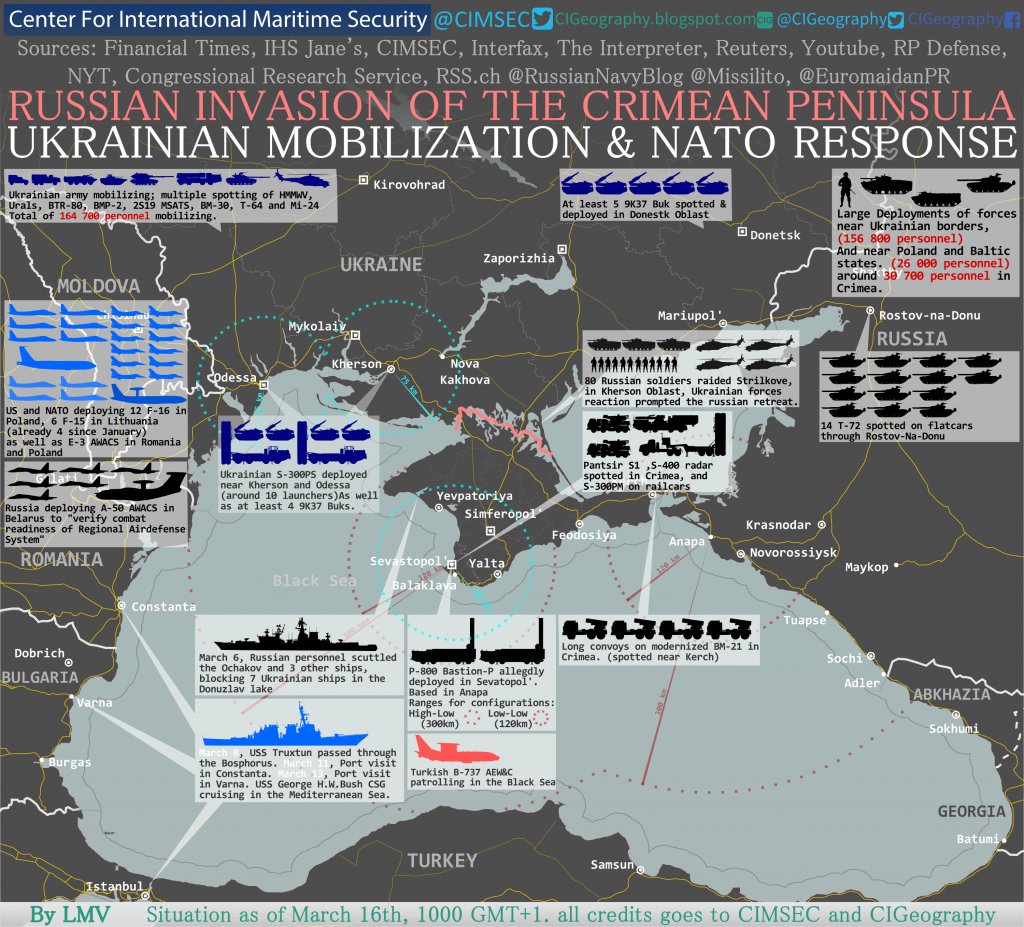guanotwozero
Posts: 651
Joined: 12/27/2013
Status: offline

|
quote:
ORIGINAL: Demuder
quote:
ORIGINAL: flanyboy
So in 30-40 years when demographics have shifted more would it be ok for a referendum in the southwest to take the states of New Mexico, Texas, Arizona and Southern California (not as state I know) and remove them from the US and give them back to Mexico? After they were part of Mexico for a long time.
I understand you are trying to be sarcastic, but let's suppose that what you describe indeed happens sometime down the line.
Bear in mind that much of the "Hispanoisation" of Texas (and other southern states) is due to an influx of people from further south, aspiring to better lives. It's the economic strength and "soft power" of the US that attracts them. They overwhelmingly want to become Americans who gain full benefit of citizenship; sure, Hispanic Americans, but Americans nonetheless. If there were a referendum tomorrow, the outcome would probably be far more supportive of the Union even than in Sam Houston's day. However, the point is it would still be legitimate to ask - legitimately.
quote:
In fact, let's say it happens 150 years from now, so that the problem has some time to brew and fester.
Well, what would be the crisis? A period of corrupt Washington rule, where the whole country goes downhill and ordinary people everywhere become impoverished? OK, lets indulge that idea...
So, in this scenario, it's now more than a decade since the US gave up the last of its nukes in return for sovereignty guarantees by superpower Mexico  and other countries. The current incumbent of the White House, President Al Yankovich, accused by many of mismanagement and corruption as well as being just plain weird, negotiates a trade deal with a neighbouring economic club, the Eurocanada Union. and other countries. The current incumbent of the White House, President Al Yankovich, accused by many of mismanagement and corruption as well as being just plain weird, negotiates a trade deal with a neighbouring economic club, the Eurocanada Union.  The population, desperate for a better life, hope - indeed expect - it will change things for the better. People in the small town of Lebanon, Kansas, start buying recipe books for paella, bigos and moussaka, and those in Green Bay can almost taste the maple syrup already! The population, desperate for a better life, hope - indeed expect - it will change things for the better. People in the small town of Lebanon, Kansas, start buying recipe books for paella, bigos and moussaka, and those in Green Bay can almost taste the maple syrup already!
Then, suddenly, under pressure from the current autocrat in Mexico City (let's call him El Presidente Putino for the sake of argument), the US president backs out of signing the Eurocanada deal. People are furious! This is the spark that prompts the masses to take to the streets in Washington. The protests grow, eventually prompting Yankovich to flee, and a caretaker administration (including EXISTING congressmen) takes over prior to elections. OK, the US presidential system is not the same as Ukraine's semi-presidential, but hey...
So, what happens in the the now hispanic-majority "Tejas"? Why would it feel any different from the rest of the country? Washington has served them as badly as elsewhere, though maybe the high level of local autonomy has sheltered them from the worst excesses of the kleptocrat in the White House. They're less badly off than the people in Wisconsin, but only a little. Still, maybe some would like a referendum to change sovereignty and join Mexico. That would be a legitimate thing to ask for, but there's no way it could be organised quickly nor campigned for fairly, until the chaos in Washington is resolved. Furthermore, it must still be consistent with the constitution to be accepted as legitimate both within and outside the US, as well as (most importantly) free and fair.
However, the signs are looking bad from next door. The mainstream press in Mexico refers to the new administration as Nazis and Polkists, despite the fact that they worked with those exact same congressmen until now. They claim the crisis has been caused by meddling from "The Northeast". Their TV shows uniformed members of the John Birch Society amongst the protestors in Washington. In fact it ONLY shows them, and ignores the vast throng of ordinary people. It states that these Nazis want to ethnically cleanse all hispanics from Tejas and other areas. It claims these "Nazis" and "Polkists" of "the Northeast" are entirely to blame, ignoring the fact that most countries of the NE also suffered under such regimes in history and are today utterly different. The more worldly-aware Tejanos and Mexicans know these claims are nonsense; nevertheless a proportion of people, who only watch Mexican TV, buy it.
At this point Putino returns from a well-photographed bareback hunting trip in Sonora to take charge of the situation. He calls for the Nazis to be resisted, and refuses to recognise the caretaker administration in Washington or even talk to them. He offers that Mexico will reach out to the "suffering people" of Tejas. The Mexican army masses huge forces along its northern border, carrying out "exercises" in case the Polkists try to expand their territory. The deposed Mr. Yankovich resurfaces in Monterrey, claiming he's still the legitimate president and publicly asking Mexico to invade and restore him to office.
Suddenly, the streets of Galveston (where the Mexican Navy has a large base, currently leased for 30 years ahead) are full of soldiers wearing no insignia, although they use Mexican uniforms and equipment, and the APCs have Mexican number plates and ID flashes. They mostly don't speak and turn away journalists, though brief snatches of accents from Guerrero and Oaxaca can be heard. Mexico insists they are local forces, nothing to do with them. Their presence spreads across the state, and masked, armed men storm the Tejas Capitol in Austin. They claim they're "defending" it from Polkists, but won't let journalists near. They appoint a new Governor, a certain Señor "El Gnomo" Accion-Nova once known for his tattoos, hairnet, dodgy associates and failed political career, but now wearing a suit and increasingly appearing on Mexican TV as the voice of "the Tejano people". Austin is now even weirder than normal.
Journalists everywhere are harassed and prevented from doing their job, although some manage brief snippets of US soldiers besieged within their bases. "I've disarmed them all" shouts a base commander from behind his gates, past the mysterious masked soldiers that surround his base, "as I don't want any spark or loss of life. Nevertheless we intend to peacefully remain here as long as possible. Hoo-ah!". Some English-speaking Texians are interviewed, though most hide their identity as they fear repercussions. They deeply fear the new local administration. Also interviewed are a number of Tejanos who disapprove of the new situation, but fear to voice their opinions in the current climate as they'll be regarded as "traitors". Some do want to join Mexico, but fear that this fraudulent method will rob their aspirations of any legitimacy for a long time to come. The local English-language TV stations are closed down and US network TV goes off the air for "technical reasons".
The exception is Mexican TV, whose reporters only cover cheering, smiling Tejanos happy with this new development, as well as the thuggish Nazis in Washington pulling stunts like beating up a TV executive. They claim the Texians and US authorities are driving Tejanos out of their homes, but show no coverage of this. They do show footage of "refugees fleeing into Mexico", until someone points out that it's actually a US-Canada border post on a normal day and the footage is quietly withdrawn. Nevertheless, the streets of Mexico City now have regular crowds calling for support of their Tejano "hermanos y hermanas" in their hour of need. There is an element of Mexican press that covers it more objectively, but these are the small outlets that don't have a large audience. Any that grow too large are shut down or taken over by friends of Putino. Sceptics suggest their continued existence at all is only so that Putino can claim there's a free, diverse press in his country.
Next, it is announced that there will be a referendum in Tejas - in two weeks time. The choice is between Mexico and the USA. Plenty of time for campaigning, no? Posters go up across the state, showing a choice of two maps - one with a background of the Mexican flag, the other showing bloodsoaked swastikas made out of barbed wire. The "campaigning" follows the same vein. International observers are stopped at the border, and journalists - even some Mexican ones - are harassed and only allowed to cover what the armed men will allow them. Some manage to sneak away to places they're not allowed, showing where gangs of heavily-tattooed Tejanos have left peculiar identifying marks on Texians' houses. Most Texians keep a low profile, not daring to campaign or even vote, not that they'd want to justify such a fraudulent referendum anyway. The besieged soldiers, many of whom are Tejanos and Texians, remain unable to go to the polls or participate in any way.
The result is hardly a surprise - the announced percentage in favour of unification with Mexico rivals that of a North Korean presidential vote.  The remaining US bases are stormed, and US ships blocked in Galveston are seized. Mexican flags replace US ones everywhere. The worldwide community is outraged, calling it a breach of international law as well as utterly reneging on the treaty whereby the US gave up its nukes. Any respect for the impressive organisational effectiveness of the act is dwarfed by disgust at its unfairness. The one saving grace is that the whole exercise remains almost entirely bloodless, separating it from the otherwise similar annexations of the past. The remaining US bases are stormed, and US ships blocked in Galveston are seized. Mexican flags replace US ones everywhere. The worldwide community is outraged, calling it a breach of international law as well as utterly reneging on the treaty whereby the US gave up its nukes. Any respect for the impressive organisational effectiveness of the act is dwarfed by disgust at its unfairness. The one saving grace is that the whole exercise remains almost entirely bloodless, separating it from the otherwise similar annexations of the past.
Putino states that that in people's "heart of hearts" Tejas has always really been a part of Mexico. He claims that the earlier treaties don't count as the government in Washington has changed (ignoring the fact that it does so every 4/8 years anyway), and that the move is entirely consistent with international law. He sees it as a fait accompli, and reckons he can weather the diplomatic and economic storm to come.
Indeed, the fact that the response will include a military buildup on the Canadian border, as well as boycotts and sanctions, will allow him to claim he's being tough in standing up to the "militarist Northeast" who want nothing other than to destroy Mexico. His ratings may soar for a while, and he may even be out of office by the time the economic effects start to bite hard. In which case his presidency will be remembered as the "good old days" at a time when his successors have to deal with the crushing problems caused by the now-substantial sanctions, and the ever increasing likelihood that they'll have to withdraw from the occupied territory or at least reach a humiliating deal. Perhaps as well as certain other occupied territories in Guatemala, which only Mexico recognises as independent states. Their large nuclear arsenal doesn't shelter them from economic pressure.
quote:
Now try to imagine that when the crises breaks out, China and India sail in with their -by that time- mighty fleets, and say "hey boys, WE know what you should do about it, because WE found this book of International Law in our back pockets". How would that make the Mexicans or the US feel ?
They'd also be bound by that exact same international law. They would be unable to legitimately annex parts of the USA or Mexico, not that they'd ever want to. The same laws protect China from Japan grabbing Manchuria again (even if it could or was minded to), or the British from recolonising India. They gain stability and safety by existing in a world with such laws, and benefit from the prosperity brought about by defence, trade and other pacts & agreements that they can rely on to be honoured. So if they object to Mexico annexing Tejas in such a way and breaching nuclear agreements, they'd be perfectly right to do so. It would be a very big deal.
EDIT ===
As @JD says above, this international law is what Russia and all other nations have already signed up to. It's not something invented on a whim by other nations, or something new just pulled out of a back pocket.
quote:
I am not trying to say that Texas and Arizona should go to Mexico, I am not even saying that what Russia did was right. What I am saying is that sometimes -almost always in fact- the World Police intervene with no regard for the intricate social and political circumstances that lead to the crisis, but only because of their economic and strategic interests.
There is no world police. While international law is quite clear, there's no official body to enforce it. The only response to breaches are either by UN-approved moves (e.g. blue-helmeted peacekeepers), or individual countries/coalitions acting in line with such laws. Most of the time it's not an issue as many countries cooperate to keep things working as they should, e.g. anti-piracy patrols and peacekeeping forces, as well as the day-to-day cooperation between states.
While the UN is useful in many ways, one of its major failings is due to the Security Council system where any permanent member can veto anything. Hence if one of the transgressors is such a permanent member (as Russia is), the UN can do little other than send a message of disapproval by showing that transgressor to be in a minority of one. Any meaningful responses will be outwith UN decisions, though of course must themselves be consistent with international law.
quote:
Just today, I read an article in the paper that the US and EU should organize their efforts (non military ones, thank God) against Russia, so that the EU secures a safe and steady energy source. Now, being Greek and part of the EU, I am all for a steady energy supply for the future. But how does that give me the right to have a say in what Crimea does in regards to who it decides it belongs to ? It is just as absurd as China decreeing that Texas and Arizona should stay with the USA (in your example above) under the pretense of International Law, so that Mexico doesn't increase it's industrial base and suddenly becomes a contender in manufacturing.
It's not really your say as an individual; international law is quite clear on the matter. It's not linked to economic policy at all, other than maybe persuading voters in a legitimate referendum. Crimea's status in Ukraine is irrespective of any trade agreements signed by Kiev. Trade deals can be used to sweeten policies, but don't affect international law at all.
Greece, like Ukraine, Russia, USA and all EU members, is signatory to the many agreements that make up international law and conventions. Sure, the country could withdraw from them, but then it would become a pariah nation without friends, and wouldn't be in a position to stop a large neighbour (with a long history of tribal and imperial occupations) invading again. The de facto occupation of North Cyprus could become de jure if there were no such laws to prevent that; instead of working towards an eventual solution, the 1974 division, property seizure and ethnic cleansing would be permanent.
That's the point of international law - it benefits all of us. The world still has deep problems, but it's a whole lot better than before such laws existed. It brings the stability to improve economies and conditions, albeit with temporary hiccups, like in Greece recently. It allows crises and differences to be resolved in a framework of fairness and pragmatism. If everyone abandoned it, it would mean hurtling back to a troubled past instead of steadily progressing to a brighter future. Maybe Norway would cash in in its oil wealth for high-tech nuclear-armed stealth longboats, and start pillaging the shores of Europe. Spain might again grab chunks of South America, and we may even have to expect a new Spanish Inquisition.  Do you really want to live in a world heading in that direction? Do you really want to live in a world heading in that direction?
There could be a legitimate process of Crimea changing sovereignty (or Scotland, Catalunya, maybe even Crete  ), but this is definitely not it. ), but this is definitely not it.
< Message edited by guanotwozero -- 3/27/2014 7:56:56 PM >
|
 Printable Version
Printable Version






 and other countries. The current incumbent of the White House, President Al Yankovich, accused by many of mismanagement and corruption as well as being just plain weird, negotiates a trade deal with a neighbouring economic club, the Eurocanada Union.
and other countries. The current incumbent of the White House, President Al Yankovich, accused by many of mismanagement and corruption as well as being just plain weird, negotiates a trade deal with a neighbouring economic club, the Eurocanada Union.  The population, desperate for a better life, hope - indeed expect - it will change things for the better. People in the small town of
The population, desperate for a better life, hope - indeed expect - it will change things for the better. People in the small town of  The remaining US bases are stormed, and US ships blocked in Galveston are seized. Mexican flags replace US ones everywhere. The worldwide community is outraged, calling it a breach of international law as well as utterly reneging on the treaty whereby the US gave up its nukes. Any respect for the impressive organisational effectiveness of the act is dwarfed by disgust at its unfairness. The one saving grace is that the whole exercise remains almost entirely bloodless, separating it from the otherwise similar annexations of the past.
The remaining US bases are stormed, and US ships blocked in Galveston are seized. Mexican flags replace US ones everywhere. The worldwide community is outraged, calling it a breach of international law as well as utterly reneging on the treaty whereby the US gave up its nukes. Any respect for the impressive organisational effectiveness of the act is dwarfed by disgust at its unfairness. The one saving grace is that the whole exercise remains almost entirely bloodless, separating it from the otherwise similar annexations of the past.  Do you really want to live in a world heading in that direction?
Do you really want to live in a world heading in that direction? 





 Well it looks like a done deal. Can you believe the gall of Russia demanding Ukraine break up into a "federation" plus everybody has to accept the Fait accompli of annexing Crimea. Oh don't forget Ukraine cannot join NATO.
Well it looks like a done deal. Can you believe the gall of Russia demanding Ukraine break up into a "federation" plus everybody has to accept the Fait accompli of annexing Crimea. Oh don't forget Ukraine cannot join NATO. 
 , so to speak. It is like one of those "hell let's talk about dinosaurs", jurrasic park sort of things. The west (mostly US) has already decorated Ukraine as another "maiden" in need of rescue, this time (since we don't have Al'Qaida here) it is our old Nemesis, oh no! It can't be.. it is Putin trying to recreate the glorious SOVIET UNION... aaaaand again we notice Poland being slightly panicked for the 10th time in the last century
, so to speak. It is like one of those "hell let's talk about dinosaurs", jurrasic park sort of things. The west (mostly US) has already decorated Ukraine as another "maiden" in need of rescue, this time (since we don't have Al'Qaida here) it is our old Nemesis, oh no! It can't be.. it is Putin trying to recreate the glorious SOVIET UNION... aaaaand again we notice Poland being slightly panicked for the 10th time in the last century  .
. 



 New Messages
New Messages No New Messages
No New Messages Hot Topic w/ New Messages
Hot Topic w/ New Messages Hot Topic w/o New Messages
Hot Topic w/o New Messages Locked w/ New Messages
Locked w/ New Messages Locked w/o New Messages
Locked w/o New Messages Post New Thread
Post New Thread